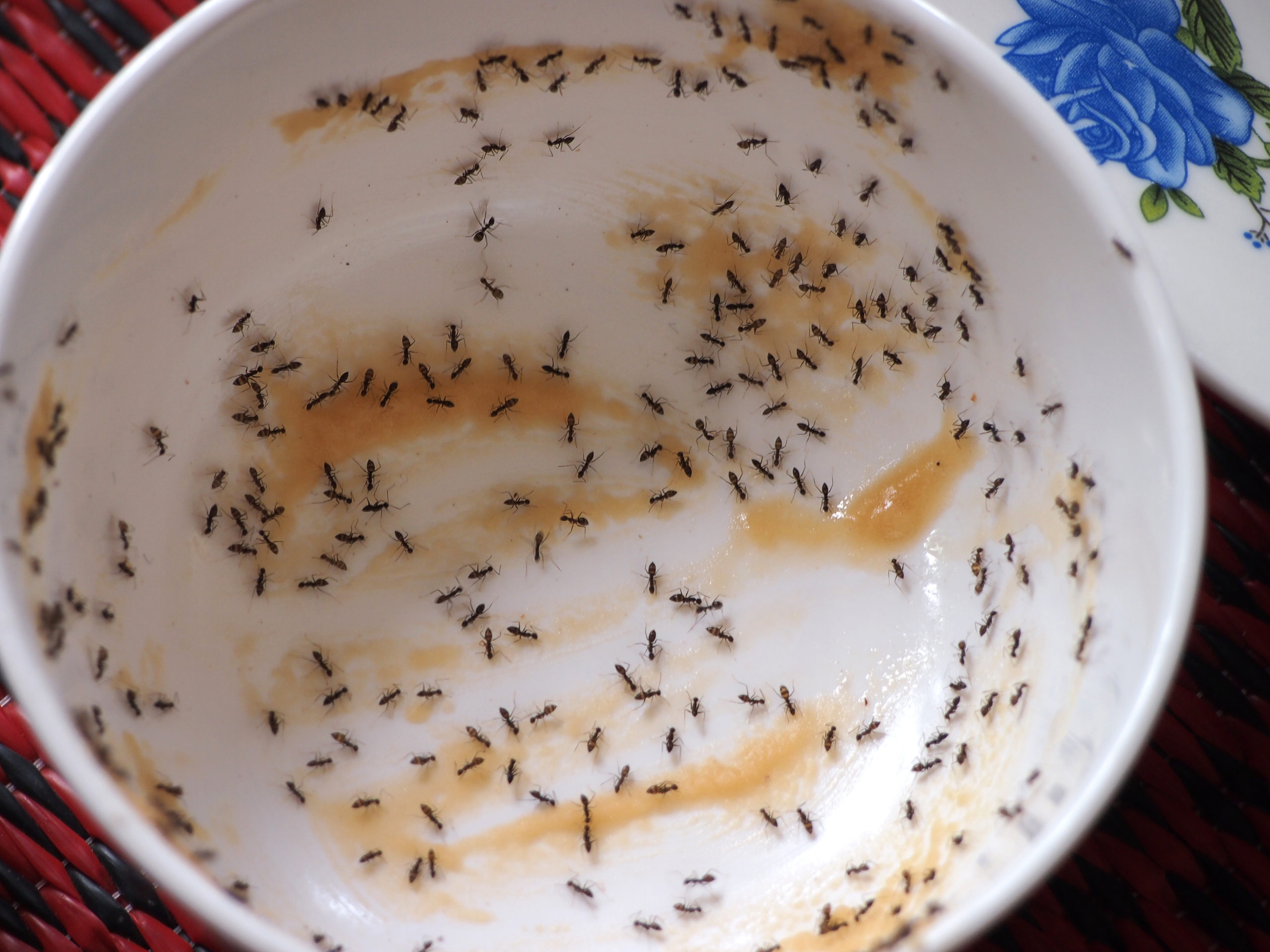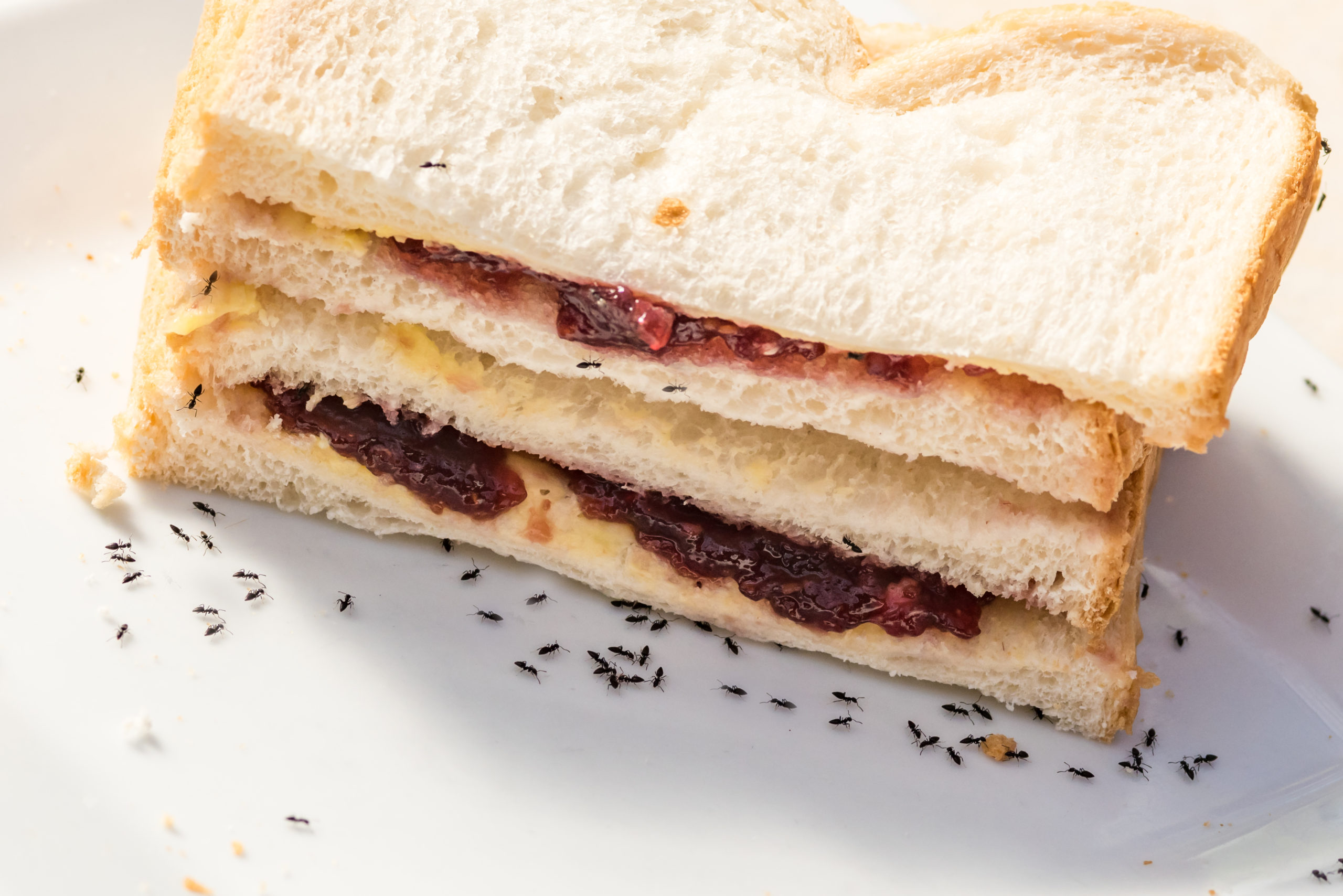Why Do Ants Invade Every Summer?
Why Do Ants Invade Every Summer?
Summer is the prime time for all kinds of pests in general, but one pest in particular seems to enjoy this season a little too much for our taste. Many homes experience an almost annual ant invasion that leaves the homeowners throwing out food and constantly scrubbing every surface that the ants touched. For those of us who have had the misfortune of entertaining what feels like a whole ant colony in our homes, the frustration surrounding these tiny pests is very relatable and understandable. But why is it so common for ants to invade houses in the summer, as opposed to other seasons? Let’s take a look at some of the reasons why ants love summer infestations and how to prevent your home from becoming a location of their next potluck party.
The Most Common Reasons

Ants and other pests can invade for any kind of reason, which is an annoying ability of theirs. So this is not the complete list of reasons why ants would invade your home; it’s simply a collection of the most common reasons why ants invade in the summer, when we are spending time inside trying to stay cool near the air conditioner.
The biggest reason for the march of the ants is simply the hot weather. Higher temperatures cause pests to be more active in general due to insects being ectotherms. This means that their internal body temperature is affected by their environment since they’re cold-blooded, which means that they have more energy with hot temperatures. The foragers are more active with finding and gathering food, and the workers are constantly building up the nest. The queen ant is also more active, as summer is the time when she lays the most eggs. It can feel like there’s a factory of ants when you experience an invasion in your home, and that’s kind of the truth as far as how much the queen is reproducing.
Another major reason for ant invasions increasing in summer is actually one of the best parts of being a human: our food is delicious! Ants are famous for loving our food and drinks to the point where they invite the colony to join them in gathering, so of course they would love to be at the source of these delicacies. Foragers leave pheromones to guide their colony to a good food source, which they smell through their sensitive antennae. Ants will stay at the same food source forever if it provides enough for the group. So if there are constant crumbs left out or opened food containers, you can bet that ants find those very enticing. Some species of ants can survive winters by seeking shelter, and these ants gather even more food to store for the coming winter. What looks like a few big crumbs to us is actually a whole feast for some ants, so access to our pantries and produce is a heavenly banquet for an ant colony.
Speaking of shelter, our homes provide the perfect shelter for ants. It’s cooler than the hot temperatures now, and safe from rain or snow in the winter. The ants who overwinter are also on the lookout for a good shelter, which explains the invasions in late summer. Ants are so small that any crack or small opening in the house is enough for them to get through. They also use pheromones to lead their colony to a new home for them, which is why an infestation grows over time if it’s not stopped. Also, ants need water just like any other creature, so water leaks and excess water in sinks and bathtubs are another compelling reason for ants to invade. If you think you love your house, imagine how amazing it is to a colony of hungry and overheated ants!
The Main Attractions

Once the ants make their way inside the house, there are definitely some specific foods and materials that attract them more than others. Food in general is a big one, but there are certain categories that seem to draw in more ants than others. One is anything sugary, whether it’s natural or processed. Any kind of fruit, cereal, dessert, or frozen treat is plenty to satisfy these pests’ sweet tooth. In the same line of thinking, ants also love anything sticky or gooey, like oil, grease, and syrup. If there is residue on the outside of the containers, ants will definitely be there. If your kids enjoy dousing their pancakes and waffles in syrup, it could be beneficial for everyone to teach them the importance of wiping leftover syrup off of the lid.
Another category of food that ants love is protein, likely because it gives the colony energy to continue building their ant empire and surviving another day. They will flock to any kind of meat or fish sitting out, like at a barbecue, and will stay there as long as the meat is undisturbed. Ants also love pet food for this reason. Dry dog food specifically is a favorite of theirs, and they can easily carry off one piece at a time to slowly steal your pet’s meals. You may have witnessed this if your dog’s food bowl was left out a little too long after meal time. Ants can lift about 5,000 times their own weight, so using teamwork to lift a piece of dog food is nothing.
One attraction that surprisingly isn’t a food source is the material holding up our houses. That’s right: wood! Carpenter ants are the first that come to mind with wood because they act very similarly to termites. Carpenter ants will gnaw through the wood to craft their intricate tunnels and make their nests, but they don’t actually consume the wood, unlike termites. This species is unfortunately not the only one that enjoys our actual houses. Other ants like to make their nests in damp or decaying wood, which is a possibility after a summer storm. The most common are little black ants and odorous house ants, which are both very common invasion culprits that we find. It’s important to treat ant invasions as soon as possible because they can cause extensive damage to the framework of the house. Ants can chew through insulation, wood, and wiring, which means an expensive headache for you later.
The Best Prevention Methods

Now that we know why ants invade our homes, it would be very beneficial to discuss some prevention methods. If you have experienced multiple ant invasions in your life, you may already do many of these things as a result of the nightmarish experience. But it may help to have a refresher on what can keep ants from making your home their own.
The most important tip, in our opinion, is to properly store all food. This means keeping all opened foods, especially in the pantry, enclosed in an airtight container. Crackers, chips, and cereals are common victims to a hungry ant army. This can be an aesthetic glass container with a tight lid, a plastic container with a snap-close lid, or even a zip-top bag with a tight seal. The important part is to make sure there is a secure seal on the container that would prevent any tiny pest from getting in, while simultaneously keeping your food fresh. And don’t forget about your pet’s food! Since ants also love dog food, it’s important to keep this sealed as well. You can use some aesthetic containers if you find any big enough to hold all that food, but there is some value in a classic plastic garbage can. The ones with a snap-close lid are the best for holding a big bag of dog food and protecting it from ants, and they can be purchased at any hardware store.
Another extremely helpful way to prevent those summertime ants is to keep up on any household repairs that may invite them in. If you have a leak in any sink, shower, or pipe, make sure to get it fixed as soon as possible. Water is a hot commodity in summer for pests, so this will greatly help in that department. Another one is to seal any cracks or holes in the outside of the house. Check the perimeter of the home every once in a whole to see if there are new imperfections, and seal small cracks and holes with caulk. Check for any wood damage as well, since that could be either an invitation for ants or a sign that carpenter ants are already on the scene.
As un-fun as they are, daily chores are vital in preventing ants and pests of any kind. We say it often, but wiping down counters and surfaces daily is so effective because it gets rid of the crumbs that ants love. If you don’t want to do the dishes right away (we get it!), try to at least rinse them off so there isn’t food residue sitting and waiting for ants. Keep trash contained in a trash can that is either sealed or kept in a secure cabinet, and take it out when it gets full. If your home experiences frequent ant invasions, cleaning the floors often will also help. Vacuum the carpets and clean the hard floors to clean the dust and crumbs that ants find before we do. You won’t have to do this daily, but keeping all tree limbs and plants trimmed back from the house will also be beneficial. Ants use these as a highway into the home, so cutting them back prevents the pests from walking in like they own the place.
If you want to prevent ants on a deeper level, or if you are unfortunately experiencing an invasion already, pest control services will be your best bet. Our team of experienced technicians know how to prevent these pesky insects from ruining your food and disturbing your peace. We only use EPA-approved treatments and baits that will eradicate the ants without using harmful chemicals. When ants bring back traces of these baits, it solves the problem at the root in their colony. Contact us today to learn more about how we will make sure that the annual ant infestation comes to an end this year.
Citations
Homeowners guide for getting rid of summer ants. (n.d.). Pest World. Retrieved July 18, 2022, from https://www.pestworld.org/news-hub/pest-articles/homeowners-guide-for-getting-rid-of-summer-ants/
Ullman, M. (2021, May 30). Solved! What attracts ants to your home. Bob Vila. Available at https://www.bobvila.com/articles/what-attracts-ants/ (Accessed on July 18, 2022)
Request a Free Quote Today
(We do not share your data with anybody, and only use it for its intended purpose)


